For quite some years now, the classic books of fly fishing have been skating on thin ice. Very thin ice. Recently it appears—at least from where I stand—that the ice has finally given way. With luck a couple of classic titles may flounder for awhile, but the bulk of them seem to be plunging unceremoniously to depths from which only the most intrepid of future anglers might dredge them. Yes, the classics are pretty much gone. I’m taking it hard.
Try finding a classic fly fishing book on the shelf of a fly shop or bookstore today. It’s damn near impossible. Explanations for their absence run to: “They don’t sell.” “No one is interested.” “No one has time to read anymore.” “Old information.” “It’s all on the Internet.” Finding even a single fly shop employee or guide that has read a classic pretty much requires advanced detective skills. If any of those employees and guides are younger than thirty-five, it’s all the more unlikely. But it’s not only the folks that work in the fishing business. Anglers of all ages and stripes have been eschewing the classics for some time.
I can think of several reasons why we shouldn’t. As in any genre of writing, the classics of fly fishing represent the best of what has been thought and said about the subject. The ideas contained in them have proven value; they are good enough to believe in. The essential truths contained in the classics are the very ones by which we profitably fish today—whether we know it or not. It’s that simple. No disrespect towards current authors, but those who penned the classics were more knowledgeable, more thoughtful, more articulate. They showed us the way, and did it beautifully.
Along with the technical insights the classics furnish us, they offer something else of at least equal value, at least to my way of thinking. They provide the philosophical foundations by which we define our engagement with the sport. That is to say, in addition to showing us how to catch fish, they also present systems of values and beliefs by which we can fish. Values and beliefs that have proven meaningful enough over the long term to serve as templates for entire angling careers (mine included).
Here are three suggestions, with a brief excerpt from each:
Nymph Fishing for Chalkstream Trout, by G.E.M. Skues (1939).
Here’s Skues, laying out the very concept of nymph fishing:
In this work then nymph fishing must, please, be understood to mean the art of taking trout or grayling at or under the surface with an artificial pattern credibly representing in colour, dimensions and outline a natural nymph of a type being accepted by trout and grayling on the stream which is being fished, and designed to be taken by the fish as such, and presenting such patterns to the trout in conditions to deceive them into believing them to be natural nymphs brought to them by the current.
A Modern Dry Fly Code, by Vincent Marinaro (1950).
Marinaro, on the theory of imitation:
The fly-fisherman and flytier should remember above all that the artificial is nothing more than what is intended, an imitation. It can never be anything more than that, and if the trout can perceive a viable distinction between artificial and natural, as he probably does, it is a gift of law to which he is entitled. These reasons suggest that the proper approach to discover the requirements of the artificial should stem from considerations of practicality in dressing and in use, the appearance on the water from the trout’s point of view, and a careful review of the living insect itself, terrestrial and waterborne.
Matching the Hatch, by Ernie Schwiebert (1955).
Schwiebert, touching on topics that resonate even today:
Trout fishing at its best is a gentle art, both humbling and satisfying. Many who pursue it never see the subtle side at all, but those who do are never without rich memories and the deep satisfaction that comes with anything well done. … In these days of hard-fished waters, ethics and philosophy play an ever increasing role in our enjoyment, and to Father Walton’s measure of hope and patience let us add the spice called charity.
In short, the classics show us how we got to where we are today. They taught generations of anglers how to fish and how to think about fishing. Why shouldn’t they still? After all, knowledge of fish and fishing tactics is timeless; what worked back in the day still works now, oftentimes better than contemporary practices. In a world that seems to crave “authenticity” and “originality”, it makes little sense that we feed so eagerly today at the troughs of rehashed fishing thought. So if you’ve never read a fly fishing classic, consider doing it now—while a few remain afloat. I think you’ll be glad you did.

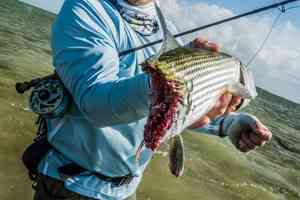
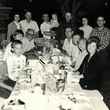

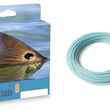
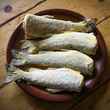
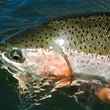
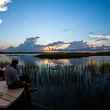



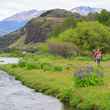
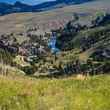
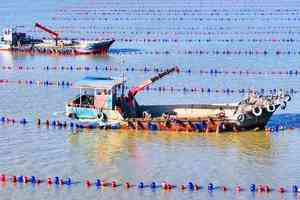
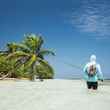


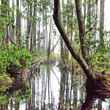



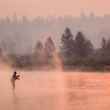
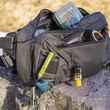



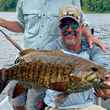
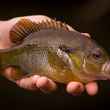
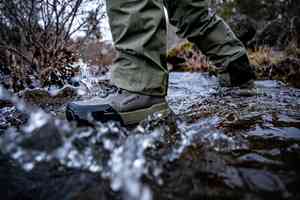
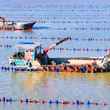
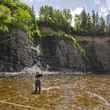
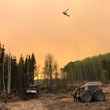
Comments
George Goundry replied on Permalink
Nice article. Beyond the three "classics" listed in the article. What other classics would you recommend?
J Juracek replied on Permalink
Here are a few more suggestions. Thanks for asking. —John
This Wonderful World of Trout, Charles Fox.
A Fly Fisher's Life, Charles Ritz.
The Way of a Trout with a Fly, G.E.M. Skues.
Nymphs and the Trout, Frank Sawyer.
The Dry Fly and Fast Water, George La Branche.
George Goundry replied on Permalink
Thanks John!
Edward Vanover replied on Permalink
Wonderful article, John.
That said, the difficulty in finding such classics, and trying to instill many of the younger folk with their wisdom has led me to carefully loan out those that I have long held closely, giving me many more grey hairs in doing so. Not because I worry about the borrowers, but because I know they cannot be replaced. At least not without great difficulty and not a little expense. All of whom have taken the time have commented at length about the depth they have contained, which, to the detriment of those who have not had access to them, is rarely found in today's body of work.
The loss will be felt.
Darrol Groth replied on Permalink
I have also been puzzled by the lack of classics listed and offered by angling
Book sellers the last few years. MUST reading for serious collectors is Arnold Gingrich's The Fishing in Print in which he reviews the classics up to the 1070's. He is also the author of two volumes, I.e. The Well Tempered Angler, that are classics themselves. A long time editor of Esquire Mag, he is a very engaging, humorous author.
J Juracek replied on Permalink
George,
Here are a few more suggestions. Thanks for asking.
This Wonderful World of Trout, Charles Fox.
A Fly Fisher's Life, Charles Ritz.
Nymphs and the Trout, Frank Sawyer.
The Way of a Trout with a Fly, G.E.M. Skues.
The Dry Fly and Fast Water, George La Branche.
Caleb Rebarchak replied on Permalink
Well said! I've been trying to collect as many of the "classics" for my personal fly fishing library, and it's great to be reminded of their importance. I'm curious to see what some of the "new classics" will be in the years and decades to come.
Mark replied on Permalink
As you say the introduction of the internet with websites like youtube and vimeo where one can search for videos on any aspect of fishing has caused the decline of reading classic books.
I for one am guilty of the same change in activity. However I am a lover of a good read especially on the history behind certain aspects of tackle and fishing. I would recommend these three I learn't a lot from them;
Hugh Falkus: Salmon Fishing
Hugh Falkus: Sea Trout Fishing
Falkus and Buller: Freshwater Fishing
Thomas Goyne replied on Permalink
We are very lucky at Penn State University, our library has the George Harvey fly fishing collection. This includes many of the classics including books, maps, and articles. With a dedicated section in the life sciences section of the library and more material in storage. All of this is searchable on their website. They are still adding materials to this day.
John Brown replied on Permalink
Nice to see Falkus getting a mention but surely any list of angling classics needs to include Roderick L Haig-Brown's 'A River Never Sleeps' and Negley Farson's wonderful 'Going Fishing'.
And just to pick up on the difficulty (or otherwise) of tracking down fishing books, I'm lucky enough to live in Wales, which is home to, probably, the finest fishing bookstore in the world, the mind-bogglingly comprehensive Coch-y-Bonddu books in Machynlleth. Not only do they have a massive catalogue of fishing and shooting books through the ages but for the last twenty plus years they have also been publishing fishing books, including reprints of many classic titles that had gone out of print. I have absolutely no connection with the business or commercial interest in it, though I did once interview the owner, Paul Morgan, for an article I was writing. If you're keen on old fishing books, as I am, check it out.
Jim in Conroe replied on Permalink
I picked a title at random and did a Google search. The book, A Fly Fishers LIfe, is readily available for about $25 on the AbeBooks website. Thanks to the internet, very few books are actually unavailable.
I think it's more a question of a lack of interest by new fly fishers in reading the "classics." Fly fishing has changed since the 1930 - 50 era, and modern fly fishers can avail themselves of instructional DVD's, YouTube videos, and books or articles that take account of modern materials and techniques. One place to read the "new classics" would be Gray's Sporting Journal - not too much the "how to," but more the outdoor writing that encourages one to go out and experience the outdoors.
Larry replied on Permalink
As a fly fishing author with 6 books and over 100 magazine articles published, I have seen the change you are talking about. Most people want to read "free" articles that are short and easy for the short attention spans we have now in our info overloaded lives. Many of the internet pieces end up being brief, seo optimized, ad riddled drivel. You have to dig pretty deep and wade through lots of trash to find a few nuggets of real wisdom or authority these days. I lament the loss of most of the best fly fishing writers with you but don't know what to do about it.
jon Landers replied on Permalink
Datus Proper's "What the Trout Said" is worthy of this list!
Terry Donaldson replied on Permalink
One other problem is the cost. Yesterday, I found online a number of secondhand "neo-classic" books on flies, the insects they imitate, and how to fish them. These were written by famous (but not necessarily well-off) fly fishing authors living and dead and published in the 1970s and 80s. They were being offered for several hundreds of dollars and occasionally over $1,000 from online vendors. Speculation seems to be the order of the day.
Pages